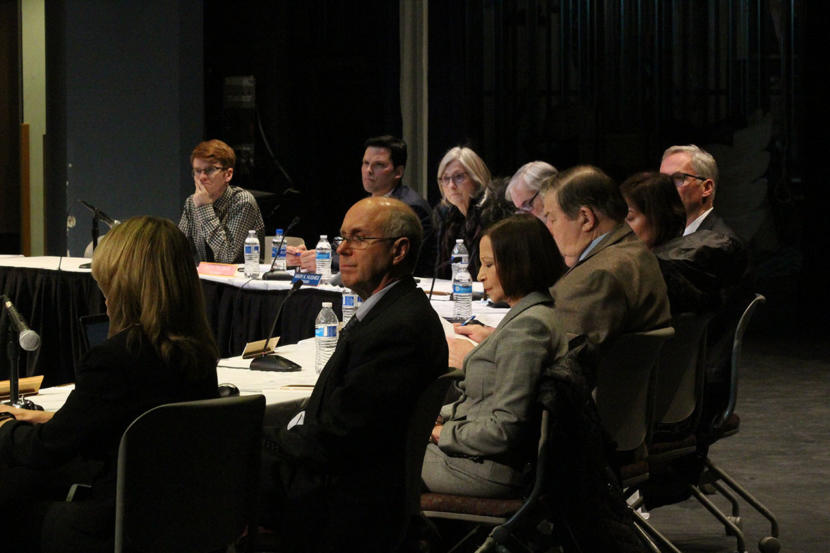
The University of Alaska Board of Regents voted to declare financial exigency Monday, enabling immediate budget cuts, including expedited faculty layoffs. Regents approved the declaration at a meeting in Anchorage in response to an over 40% reduction in state funding.
Board Chair John Davies called it a sad day, saying it comes despite overwhelming public support for the university, as demonstrated during statewide public hearings last week: He said 86% of those who testified during those hearings spoke in support of reversing university cuts and other state funding vetoed by Gov. Mike Dunleavy.
“But on the other hand, we have as indicated a fiduciary responsibility to make sure that the institution survives. And I think unfortunately, we are right now grappling with survival,” Davies said.
Regents approved the exigency declaration 10-1. Regent Lisa Parker, the sole “no” vote, said it’s still not clear what specific actions the university will take.
“I don’t see through this declaration that we’re going to be able to be saving $11 million a month to reduce that burn rate. That’s not been identified,” Parker said.
The funding cut took effect July 1 and some regents expressed the urgency of addressing it quickly. Calling the reduction a political choice, chair Davies expressed slim hope that the Legislature might restore some of the money.
“If I have to bet on it right now, I don’t think it’s very likely,” Davies said.
The second portion of today’s regents meeting focused on how the university can actually cut costs. University President Jim Johnsen said exigency enables faster downsizing, and outlined three avenues.
“We can save the money closing campuses. And we can save the money by shrinking each one of the campuses within our current university structure. Or we can re-envision how we serve the state’s higher education needs,” Johnsen said.
Regents expressed interest in options two and three. Johnsen favored the single university model, in which all campuses work together to support core areas of study.
“So a college of engineering, education, management, business … through a common curriculum and calendar, course blocks, common bill, a common transcript, a common application,” Johnsen said.
Johnsen said courses would be taught in person and online, and the ratio of students to faculty would increase. University of Alaska Anchorage Chancellor Cathy Sandeen questioned how long it would take to make such a fundamental shift, and said individual campuses are already cutting costs.
“We are working diligently to move toward reduction. And I think that gives us time to analyze a major structural change. And I think it’s the quickest path forward to meeting these reductions,” Sandeen said.
The chancellors of the University of Alaska Southeast and the University of Alaska Fairbanks also expressed concerns about centralizing the system, but Johnsen stressed that the individual campus changes would have to be very dramatic to meet the cut. Regents asked Johnsen to bring more detailed analysis of options two and three to regents at the July 30 meeting.
This story has been updated.